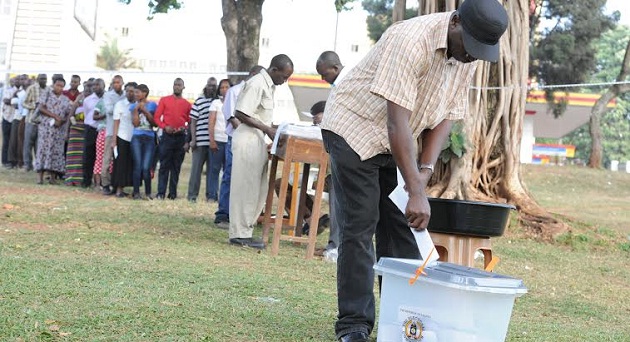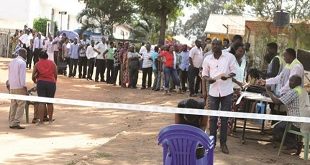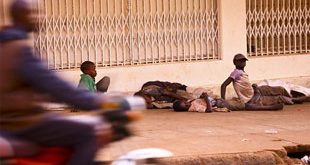
Analysis of Uganda’s COVID-19-defined general elections
COMMENT | JOSEPH MUKASA NGUBWAGYE | Last week, the Electoral Commission (EC) of Uganda launched a new road map for the 2021 general elections. The most controversial pronouncement was that the process, including campaigns and polling, will be “scientific”.
In his words, the EC Chairman said that “mass rallies will not be allowed but campaigns will be conducted mainly through media”. This means that people will not be allowed to congregate in one area, irrespective of any preventive measures employed. As expected, this was received with mixed reactions.
While the ruling party, the National Resistance Movement (NRM), did not find anything strange with the declaration, the opposition came out strongly to reject it, with some threatening never to participate in such a “joke” of an electoral process. To them, it does not meet any basic tenets of a free, fair, and credible election because it will leave out a big proportion of the electorate, especially with regards to interacting with the candidates.
To the ruling party and the EC, however, it is the best way possible under the circumstances due to the COVID-19 pandemic. But why this divergence in opinion yet there should be a consensus between the EC and all the political players for whom it is organizing the elections?
Why Opposition objects
Is this decision informed by science, panic, or opportunism like the opposition seems to suggest?
Why does the EC want to conduct an election in a manner that will most likely favour the incumbents, the rich (who will buy all the airtime on private radio and Television stations to deny their poorer counterparts audience), and does not facilitate thorough scrutiny of the candidates’ physical attributes such as demeanor, temperament and general presentation which are equally critical in influencing opinion and thus the choice of a candidate?
It is now more than ninety days since the advent of the Coronavirus into our borders via Entebbe International Airport. Since then, Uganda has so far registered a total number of 805 positive cases, no deaths, and very few, if any, Intensive Care Unit (ICU) patients. Such impressive statistics have only been recorded in Uganda! This indeed is a strange but explicable success story.
While they rightly give glory to the Almighty God for this ‘miracle’ the frontline ministry, the Ministry of Health should publicly be sharing studies of the underlying scientific reasons for today’s status, so that institutions like the EC, who have to make decisions of far-reaching impact are furnished with context-specific guidance. If such studies have been done, the information is unfortunately not in the public domain, nor with the EC.
Many now argue that the ministry continues to trade in fearmongering and employing a “single size fits all” approach which must never be the case in dealing with pandemics of a viral nature; for each population and geographical area can be affected differently, which is already evident. Any decisions must base on the peculiarity with which the pandemic affects each country.
With three months of the virus, a rainy and a dry season passed, and yet no fatality, there is neither truth nor logic in such reasoning.
In hindsight, the talk that people will die from the Coronavirus by attending rallies during campaigns is misinformed; it has no scientific basis in our case.
Frankly, our success story is not because we have the most superior health care system in the world. It is explained by other factors, most likely relating to the virus properties and potency in our unique population structure.
These factors, therefore, favour any attempt to organize an election without degrading its quality or rendering it meaningless. With preventive measures (masks, social distancing, and handwashing) employed, Ugandans should be able to participate fully, physically or otherwise, in the electoral process.
In my view, the 2021 “scientific election” is therefore not premised on scientific evidence.
I believe it is largely informed by alarmist tendencies epitomized by the Ministry of Health, either opportunistically or otherwise. It has therefore failed to guide the EC based on our unique and favourable context of the pandemic. Rather, they continue to read from the generalized World Health Organisation’s script.
****
 Joseph Mukasa Ngubwagye is Senior Research Fellow, Advocates Coalition for Development and Environment (ACODE)
Joseph Mukasa Ngubwagye is Senior Research Fellow, Advocates Coalition for Development and Environment (ACODE)
 The Independent Uganda: You get the Truth we Pay the Price
The Independent Uganda: You get the Truth we Pay the Price



I would really love it if you had given the pros and cons of the scientific elections ie why do you think the nrm government is in support and why the public is disheartened?